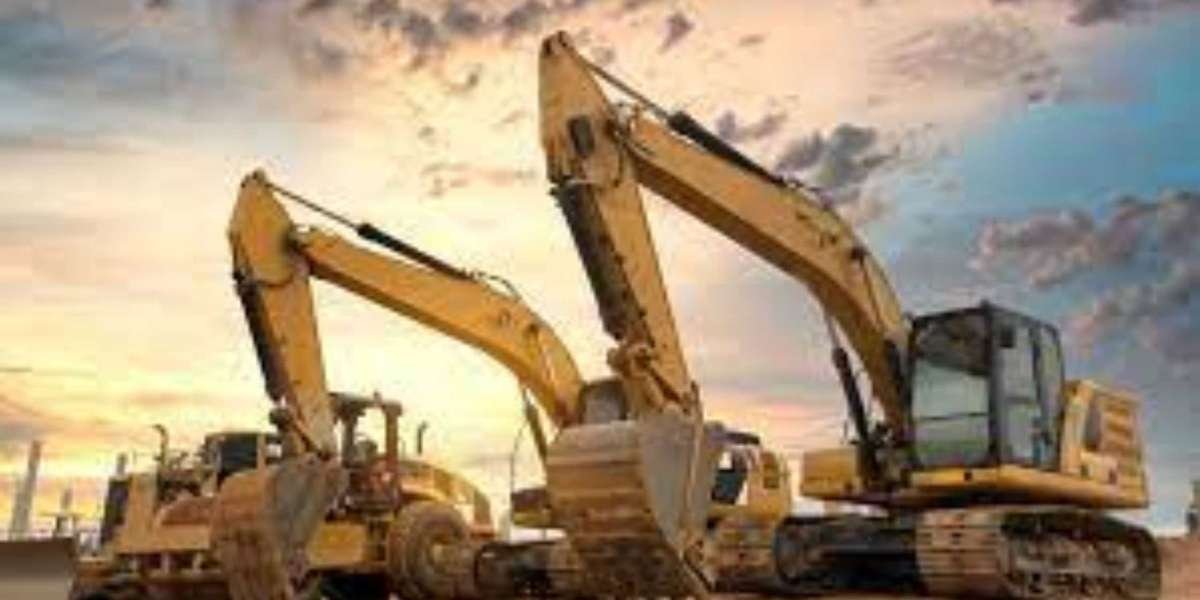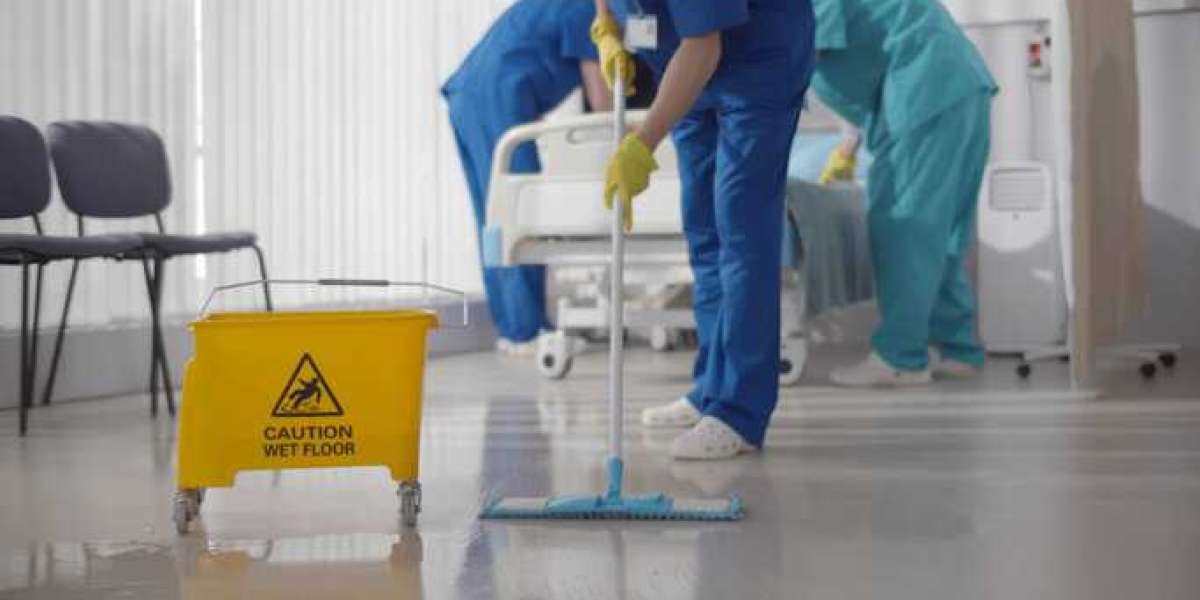Construction machinery is the backbone of any building project, helping us accomplish tasks that would otherwise be impossible or highly labour-intensive. These heavy-duty Case machine are costly investments, and maintaining them in top condition is essential for your machinery's longevity and bottom line. This informative blog will explore effective maintenance tips to keep your construction machinery running smoothly for years.
Top Effective Tips for Construction Machinery Maintenance
Regular Inspection is Key
Begin with a straightforward yet crucial step - regular inspections. Before and after each use, visually examine your machinery for signs of wear, loose bolts, or potential issues that might affect its performance.
Grease Up Those Moving Parts
Proper lubrication is the foundation of preventive maintenance. Ensure all components requiring lubrication are well-greased, following the manufacturer's recommendations. Greasing moving parts reduces friction, thereby minimizing wear and tear.
Check Your Fluid Levels
Inspect all fluid levels, including engine oil, hydraulic fluid, and coolant. Maintaining these fluids at the recommended levels prevents overheating and safeguards critical components.
Clean Air Filters are a Must
Clean air filters are essential for your machine's engine. Regularly replace or clean air filters to maintain optimal engine performance. A clean filter allows for better air intake and improved combustion, ensuring your machinery operates at its peak.
Tire Maintenance Matters
For machinery equipped with tires, keeping a close eye on tire pressure and inspecting for damage is essential. Properly inflated tires ensure stability and traction, while damaged tires can be a safety hazard.
Don't Neglect the Tracks
In the case of tracked machinery, regularly inspect and adjust the tracks as necessary. Loose or misaligned tracks can lead to reduced performance and, over time, damage to undercarriage components.
Electrical System Checks
A well-functioning electrical system is vital for the operation of your machinery. Inspect wires, connections, and batteries regularly to avoid unforeseen breakdowns. Loose or corroded electrical connections can disrupt your equipment's performance.
Keep Your Cooling System in Check
The cooling system is designed to prevent your engine from overheating. Regularly check for coolant leaks and ensure the radiator remains clean and debris-free.
Maintain a Clean Machine
A clean machine is an efficient machine. Regularly wash and clean your construction machinery. A clean surface makes it easier to spot potential issues and helps prevent rust and corrosion.
Proper Storage is a Must
During periods of inactivity, ensure your equipment is stored in a sheltered, dry location to shield it from environmental elements. Prolonged exposure to rain, snow, and sunlight can result in rust and deterioration.
Safety First: Operator Training
Ensure that equipment operators are well-trained and knowledgeable about proper operating procedures. Misuse or mishandling of machinery can lead to premature wear and damage, not to mention safety risks.
Consider Temperature Variations
Extreme temperatures can impact machinery performance. Use antifreeze in very cold conditions to safeguard the engine, and monitor engine temperature during extreme heat to prevent overheating.
Use Quality Fuel and Lubricants
Never compromise on the quality of fuel and lubricants. Using high-quality fuel helps protect the engine, while top-notch lubricants are essential for reducing friction and wear on moving parts.
Schedule Professional Inspections
Regularly schedule professional inspections by experienced mechanics. Their trained eye can identify potential issues before they become major problems, saving you time and money in the long run.
Document Everything
Maintain comprehensive records of all maintenance and repairs. This documentation is invaluable for tracking the history of your machinery and planning for future maintenance needs.
Replace Worn Parts
If any parts show signs of wear or damage, take your time. Replace them promptly. Neglecting worn components can lead to more extensive damage to other parts of the machine.
Rust and Corrosion Protection
Rust and corrosion are your machinery's silent enemies. Address any signs of rust promptly by cleaning and applying appropriate coatings.
Monitor Oil Quality
Regularly check the quality of engine oil and hydraulic fluids. Dirty or contaminated fluids can cause damage to crucial components, resulting in costly repairs.
Proper Alignment is Vital
Maintaining proper alignment of moving parts is essential. Misaligned parts can lead to excessive wear and reduced efficiency.
Pay Attention to Seals and Bearings
Regularly grease seals and bearings to prevent dirt and debris infiltrating sensitive areas. This maintenance task protects internal components from damage.
Don't Overload Your Machinery
Avoid overloading your machinery beyond its specified capacity. Overloading strains the engine, transmission, and other vital components.
Listen to Warning Lights
Pay attention to warning lights or alarms on your equipment's dashboard. Ignoring these warnings can lead to serious issues.
Hydraulic System Care
Hydraulic systems are crucial in many construction machines. Regularly inspect hoses, connections, and the hydraulic fluid level to prevent leaks and maintain proper function.
Keep Operator Manuals Handy
Ensure that operator manuals are readily available for reference. They contain essential information on maintenance procedures and troubleshooting.
Steer Clear of Abrasive Materials
Avoid working in areas with abrasive materials like sand or gravel whenever possible. These materials can accelerate wear on moving parts, reducing their lifespan.
Maintain Safety Systems
Regularly inspect safety systems, including emergency brakes and safety switches, to verify their proper functionality. These systems are essential for ensuring the safety of both the equipment and operators.
Use the Right Attachments
Using the correct attachments for your machinery is crucial. Mismatched attachments can lead to stress on the equipment and reduced longevity.
Plan Regular Downtime
Schedule routine maintenance and downtime. Preventive care is often more cost-effective and less disruptive than unexpected breakdowns.
Address Unusual Noises
Unusual noises can be indicative of underlying issues. Address any unique sounds promptly to prevent further damage.
Protect Against Vibration
Vibration can lead to loosened bolts and fasteners. Use vibration-damping materials or lock washers to secure fasteners in high-vibration areas.
Monitor Wear Parts
Keep a close eye on worn parts such as cutting edges, teeth, and blades. Replacing these parts when necessary is crucial for machinery performance.
Conduct Regular Weld Inspections
Conduct regular weld inspections for equipment with welded components to identify any cracks or weak points.
Keep It Dry
Store machinery in a dry environment whenever possible. Moisture can lead to rust and corrosion, significantly reducing your equipment's lifespan.
Properly Tighten Fasteners
Ensure that all fasteners, including nuts and bolts, are tightened to the manufacturer's specifications. Loose fasteners can lead to component failure.
Summary
Like knowing the Tata Hitachi Price, maintenance of Construction machinery is also critical. Why? Because it ensures your equipment's longevity and dependable performance. Regular inspections, adherence to manufacturer guidelines, and proactive maintenance practices are key to keeping your machinery running smoothly. Remember that taking good care of your equipment extends its lifespan and minimizes downtime and repair costs, ultimately boosting your productivity and profitability.












